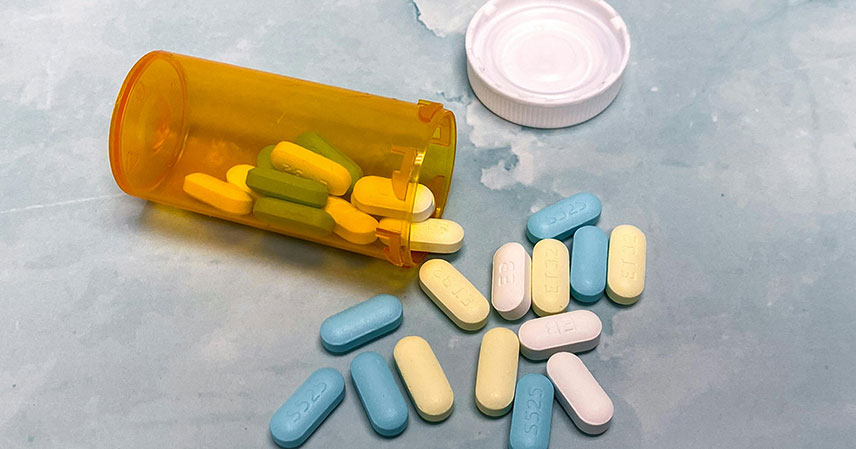In a beacon of hope amidst the ongoing global health crisis, an international study spearheaded by researchers at the Australian National University (ANU) in collaboration with King’s College London has unveiled a significant breakthrough. The research indicates that a widely available and affordable drug has demonstrated effectiveness in treating seriously ill COVID-19 patients. This revelation carries profound implications, not just for the immediate management of the current pandemic, but also for shaping future global health strategies and ensuring equitable access to life-saving treatments.
The initial news, while concise, speaks volumes about the potential shift in how severe COVID-19 cases could be managed worldwide. The emphasis on the drug’s “widely available” and “affordable” nature is particularly crucial, addressing two of the most significant hurdles in pandemic response: resource distribution and economic burden. For many nations grappling with overwhelmed healthcare systems and limited budgets, such a discovery is nothing short of transformative. It underscores the critical importance of rigorous scientific inquiry, even for existing medications, in the face of novel health threats.
The Promise of Accessibility and Affordability 🌍
The phrase “widely available and affordable” is not merely a descriptive detail; it represents a cornerstone of effective global health intervention. During a pandemic, the equitable distribution of treatments often becomes as challenging as their discovery. Expensive, patented drugs, while potentially effective, can create significant disparities in access, leaving vast populations, especially in low and middle-income countries, vulnerable. This study’s finding, therefore, has the potential to dramatically level the playing field.
Imagine the impact: a drug that doesn’t require complex cold chains, specialized administration, or exorbitant costs. Such a treatment can be rapidly deployed to hospitals and clinics across the globe, reaching patients irrespective of their socioeconomic status or geographical location. This is particularly vital for seriously ill patients, where timely intervention can mean the difference between recovery and critical decline. The economic relief for healthcare systems, already strained by the pandemic’s demands, would be substantial, allowing resources to be reallocated to other critical areas like vaccination campaigns, public health infrastructure, or long-term care for COVID-19 survivors. This aspect of the discovery cannot be overstated; it moves beyond clinical efficacy to address fundamental issues of health equity and global solidarity.
Deeper Dive into the Research: What This Means 🔬
The credibility and significance of this finding are amplified by the nature of the study itself: an “international study” led by reputable institutions like ANU and King’s College London. International collaborations typically involve a larger patient cohort, diverse demographic representation, and rigorous methodologies, all contributing to the robustness and generalizability of the results. This suggests that the observed effectiveness is not confined to a specific region or population, but rather holds promise across varied clinical settings.
The focus on “seriously ill COVID-19 patients” is also key. While milder cases often resolve without specific drug intervention, severe cases are responsible for the majority of hospitalizations, intensive care admissions, and sadly, fatalities. A drug that can effectively mitigate the severity of illness in this critical patient group could significantly reduce the burden on healthcare systems, free up ICU beds, and ultimately save countless lives. While the specific drug has not been named in the initial report, such treatments often target the body’s overactive immune response (the “cytokine storm”) that can lead to organ damage in severe COVID-19. Drugs in categories like corticosteroids, for instance, have previously shown success in modulating this response. The research likely involved careful monitoring of patient outcomes, including mortality rates, duration of hospitalization, and need for respiratory support, to confirm the drug’s beneficial effects. This scientific rigor ensures that the findings are not just hopeful, but evidence-based and actionable for medical professionals globally.
Broader Implications for Pandemic Response and Future Preparedness 💡
This research has far-reaching implications that extend beyond the immediate treatment of COVID-19. Firstly, it provides an additional, potentially foundational, tool in the therapeutic arsenal against the virus. Combined with vaccination efforts and other preventative measures, effective and affordable treatments can significantly strengthen a nation’s ability to manage future waves or variants of the disease.
Secondly, it highlights the immense value of repurposing existing drugs. The development of new drugs is a lengthy, expensive, and often uncertain process. Identifying new applications for drugs that are already approved, well-understood, and readily available offers a fast-track solution in times of crisis. This ‘drug repurposing’ strategy should be a central pillar of future pandemic preparedness plans, encouraging sustained investment in screening and clinical trials for existing compounds against emerging pathogens.
Finally, this study reinforces the importance of international scientific collaboration. The pooling of expertise, resources, and patient data across borders accelerates discovery and validates findings on a global scale. As the world faces an increasingly interconnected future, such collaborative models will be indispensable for addressing shared health challenges. This particular finding offers a blueprint for how academic institutions and healthcare providers worldwide can unite to deliver practical, impactful solutions that benefit all of humanity.
Key Insights ✨
- Accessibility is paramount: The effectiveness of a widely available and affordable drug offers a critical tool for global health equity, ensuring treatments reach populations in resource-limited settings.
- Impact on severe cases: The drug’s efficacy in seriously ill COVID-19 patients has the potential to significantly reduce mortality rates and alleviate the immense pressure on hospital intensive care units worldwide.
- Validation of drug repurposing: This study underscores the vital role of investigating existing medications for new therapeutic uses, offering a quicker and more cost-effective pathway to effective treatments during health crises.
- Global collaboration’s strength: The international nature of the study, led by ANU and King’s College London, highlights the power of cross-border scientific partnerships in delivering robust and broadly applicable health solutions.
In conclusion, the findings from ANU and King’s College London represent more than just a scientific achievement; they symbolize a tangible step towards a more resilient and equitable global health future. By demonstrating the power of an accessible and affordable intervention for severe COVID-19, this research not only offers immediate relief but also provides invaluable lessons for how the world can better prepare for and respond to future health emergencies. It is a powerful reminder that sometimes, the most impactful solutions are those that are within reach for everyone.
📚 References
Source: Inhaled heparin reduces risk of ventilation and death in severe COVID-19 cases



